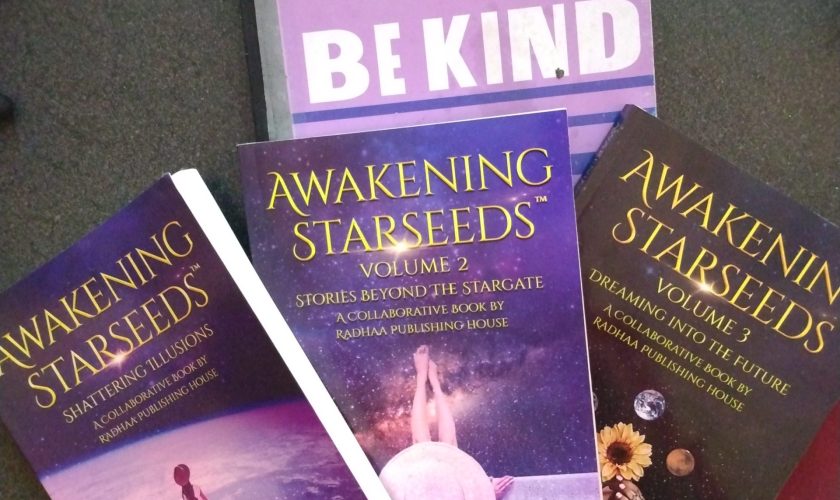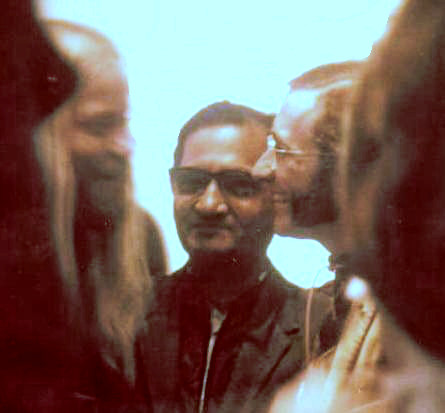How we view our history and future can be skewed, or even screwed if we don't see either well. I promised my readers I would…
The Problem of Religion and the Promise of Creation
Have you noticed that the three great monotheistic religions of the world are also the three great problem makers in the world? Is God the problem? Does God want these vast forces to wage war with the others? We’re told lately that society has gotten too secular, too wayward, and that we should return to our religions and have more faith. But should we? Haven’t religions often been the source of problems – from stifling knowledge to torturing non-believers? Haven’t religions insisted on preposterous claims and made many to believe they must believe to be religious? Haven’t religions insisted on faith as the mark of one’s religiosity? Does sanctimony substitute for sensibility? Do we let piety protect power? Is thinking for one’s self and coming to other conclusions a bad thing? Is being skeptical of religious claims and shenanigans a sign of not enough faith, or is it the dawning of a renewed faith in our own abilities and responsibilities too long neglected?
It is especially the fundamentalist forces in these three great religions that drive their societies to madness. Fundamentalist zealots in Islam dominate their society. From bossy mullahs to murderous attackers, insistence on the harsh aspects of the Muslim faith drives a growing tendency to war. Fundamentalist rabbis in Israel dominate their society. They claim the same old self-serving problematic scripture passages that foster racial hatred, land grabs, and racist superiority/inferiority again, just as they have for thousands of years. Fundamentalist ministers and priests in America seek once again to impose their narrow harsh views of Christianity on Americans, exacerbating the polarization and injustices of both sides of the holy land and supporting a sanctimonious president in his messianic delusion of imposing virtues in others by warring on them.
Considering that all three great monotheistic religions, Islam, Christianity, and Judaism, all base their scriptures on the books of what we call the “Old Testament” one might tend to think those books are themselves are fraught with dangerous misdirection. And they are. “Believing in the Bible” wastes our minds and points us to the same old troubles of the past. We’re told these are all God’s words to humanity, fully distorting the obvious truth that they are some human’s words about God, history, yearning, failure, fervency, etc. They range from the sad to the sublime, from the boring to the inspiring, from the hideous to the most honorable. To take every passage as God’s word is a great mistake. This neglects, confuses, and impedes our own thinking ability and humanity’s vast store of other wisdom (which scripture and literature itself is also a mixed blessing at best).
Of particular note in our American society is the fervency with which many Christians defend what they call “Creationism.” Based on the Garden of Eden story in Genesis, the first book in the Bible, this account depicts Adam being formed in a garden, and Eve from him, both free and happy in the abundant garden until they eat of the tree of the knowledge of good and evil and so suddenly cover their formerly naked bodies in shame, hide from God, and get cast out to lives of toil and trouble. This goes on to form the scriptural basis of the Doctrine of Original Sin, meaning we’re fallen and flawed, and need the redemptive power of grace via Jesus’ sacrifice, which we must have faith in for it to work. Such Creationists angrily renounce the teaching of evolution in science classes, clinging to this recent and fantastical story of Adam and Eve. They resent the far more ancient and lasting view of time, space, and evolution that science has assembled and is refining.
What’s amazing is that the Garden of Eden story is the second creation story in the Old Testament. It is preceded by the first creation story, Genesis One, a very evolutionary story. In this account, Elohim God (singular and plural, male and female) creates light and calls it “good,” water and calls it “good,” land, “good,” fishes, “good,” animals, “good,” and humans (“males and females he made them in his own image” goes the odd passage) also called by God, “good.” Taken all together, these six stages of creation are called by God “very good.” Having created the natural universe and called it all good, God goes on to say to replenish it, have dominion, and to eat “fruits, nuts, and herbs that bear their seed.” End of account. No demand for worship. No shame. No alienation.
Ask most people what they think the fruit of the tree in the Garden of Eden was and they’ll say, “sex.” Ironic, eh? They had sexual identity before eating of the forbidden fruit. Only after eating of it do they realize they are naked and so cover themselves in shame. The tree was the “tree of the knowledge of good and evil.” It is under a different name for God, YHWH, a singular and masculine name. Eating of that fruit leads to their shame, their hiding from God, God’s wrath, their expulsion, and the beginning of the story of alienation. What was defined as good by God in Genesis One gets shifted into being evil in Genesis Two/Three under the advice of the subtle serpent. Sex was not the sin, but shame of sex is the sign of being tricked into the confusion of just what is good and just what is evil.
Neither passage creates reality except as people believe it. By centering on the fall and the supposed Original Sin, religions have ignored the Original Goods. In other parts of the Bible there are beautiful descriptions of the “cedars of Lebanon.” What cedars of Lebanon? There are only rocks left. Greece too was once forested but fell to the ax, then the goat, to return to dessert. In Iraq today all three religious forces are helping create hell in the same place that the Garden of Eden was supposed to have been. Stubborn, narrow, angry, presumptuous, belligerent religious forces each push their fanatic faiths on the others, all forgetting and forsaking the Original Goods as defined by God in Genesis One. The ancient goodness of sunlight into chlorophyll compressed into oil is warred over in order to waste it in a glut of consumerist emptiness. Thinking Humvees are the good life, we forget and forsake the real good life that always was and yet could be.
So, I wonder, what reason or rationalization do these three great monotheistic religions offer for their take on Genesis One? It is the very root of their scriptures. It sits there in the combined canon ignored or excused away. If nature is good, if we of nature are also good, if all together it is valued by God as “very good,” how can they go on resenting science (which studies these goods) and tricking people into not trusting their own thinking and conscience, and instead giving over their gullibility to what often has been and appears once more to be what amounts to the subtle deceiver cloaked in religious garb? Are there better goods than the Original Goods – like power, fame, and stuff? Is subjugating women to men’s control a good thing? Is giving up our better thinking for faith, acquiescence, and obedience a good thing? Is warring for oil to waste it a good thing? Do mullahs, ministers, and rabbis really know what is good, or could they be feeding us the confusion of good and evil again? How can we claim to love the Creator when we don’t really love Creation? Just how good can the goods be? What if we were so religious we affirmed ourselves, cared for each other, and loved our world?
Brad Carrier, January 20, 2004
Subscribe
0 Comments






